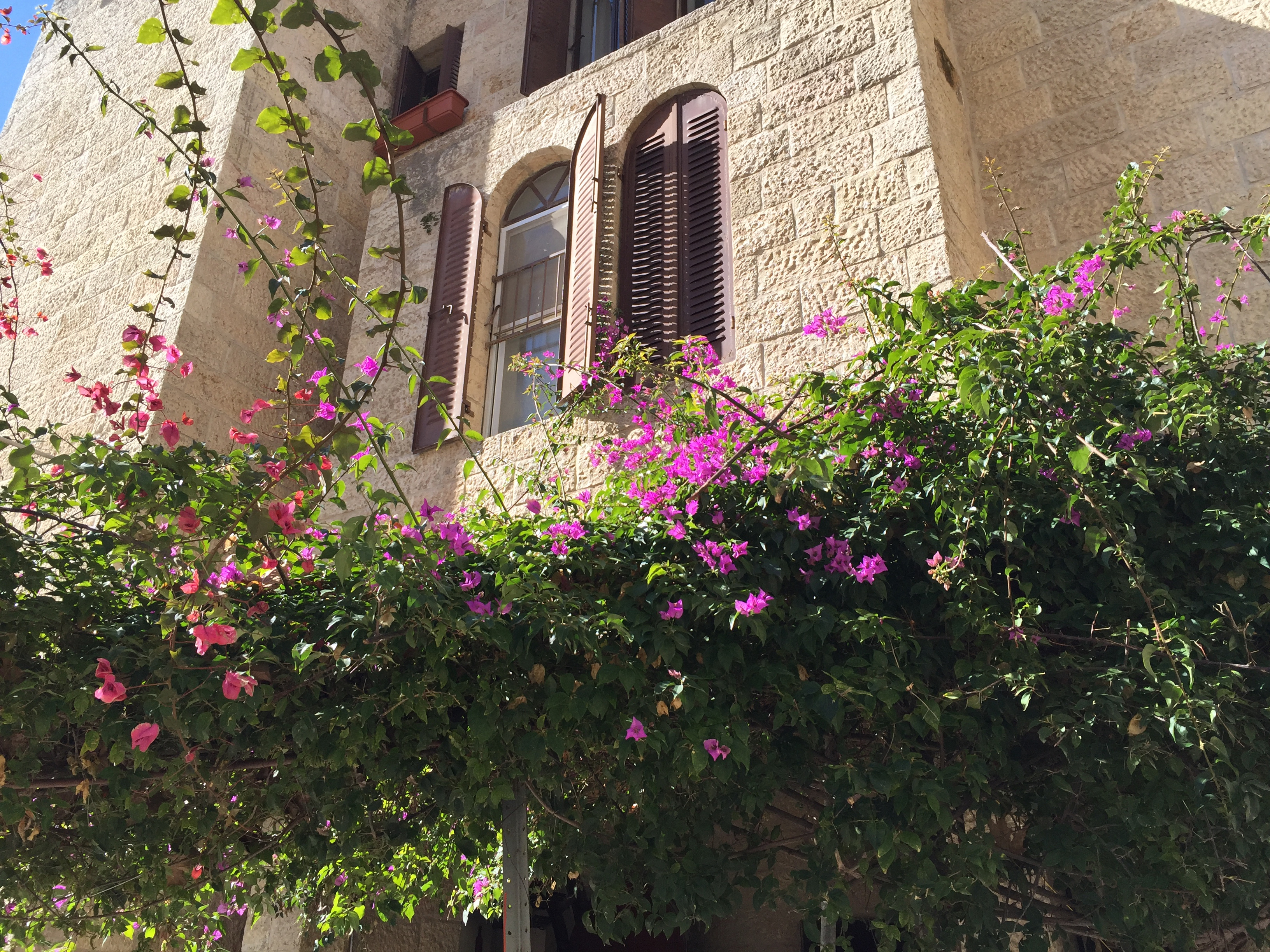
28 Jul 2016 An Inheritance in the Land
 In this week’s parsha, Parshas Pinchas, we learn of the Bnos Tzelafchad, the five daughters of Tzelafchad, who desired a portion in the Land, as their father died without leaving sons.
In this week’s parsha, Parshas Pinchas, we learn of the Bnos Tzelafchad, the five daughters of Tzelafchad, who desired a portion in the Land, as their father died without leaving sons.
וַתִּקְרַבְנָה בְּנוֹת צְלָפְחָד, בֶּן-חֵפֶר בֶּן-גִּלְעָד בֶּן-מָכִיר בֶּן-מְנַשֶּׁה, לְמִשְׁפְּחֹת, מְנַשֶּׁה בֶן-יוֹסֵף; וְאֵלֶּה, שְׁמוֹת בְּנֹתָיו–מַחְלָה נֹעָה, וְחָגְלָה וּמִלְכָּה וְתִרְצָה – And the daughters of Tzelafchad, (Tzelafchad was) the son of Chefer, the son of Gil’ad, the son of Machir, the son of Menashe, of the families of Menashe the son of Yosef, came close; and the names of his daughters are Machlah, No’ah, Choglah, Milkah and Tirzah.
And they stood before Moshe and Elazar and the princes and the congregation and they said, “Our father died in the desert…and he did not have sons. Why should the name of our father be omitted from among his family because he had no son? תְּנָה-לָּנוּ אֲחֻזָּה, בְּתוֹךְ אֲחֵי אָבִינוּ – give us a portion of the land among our father’s brothers…” (Bamidbar 27:1-4)
And Hashem told Moshe that, indeed, these daughters should receive a portion in the Land, amongst the brothers of their father, and their father’s inheritance shall pass over to them (ibid, v.7).
It is compelling that the Torah traces their lineage back to Menashe, the son of Yosef – וַתִּקְרַבְנָה בְּנוֹת צְלָפְחָד, בֶּן-חֵפֶר בֶּן-גִּלְעָד בֶּן-מָכִיר בֶּן-מְנַשֶּׁה, לְמִשְׁפְּחֹת, מְנַשֶּׁה בֶן-יוֹסֵף.
We know that Menashe is the son of Yosef. Why does the Torah remind us here that these women came from the tribe of Menashe, the son of Yosef?
It was Yosef whose descent to Egypt began galus Mitzrayim, for R’ Soloveitchik zt’l teaches that the Egyptian exile began the moment Yaakov sent Yosef looking for his brothers. The moment he sent Yosef away from home – וַיִּשְׁלָחֵהוּ מֵעֵמֶק חֶבְרוֹן, וַיָּבֹא שְׁכֶמָה – And Yaakov sent his beloved son, Yosef, from the valley of Chevron, and Yosef came to Shechem (Bereishis 37:14) in search of his brothers, the very brothers who hated him – the moment Yaakov sent Yosef on this doomed mission, was the moment the Egyptian exile began.
Yosef of the Land of Israel, the lad of seventeen, in a moment becomes Yosef the Jew of galus. Yosef who is alone, and lonely, in the land of Egypt: important to the economy, revered by the people, but never fully accepted (see Gen.43:32), lives a life of solitude in Egypt. Yosef who lives out the rest of his life in Egypt, only allowed back into Eretz Yisrael briefly to bury his father…Yosef who spends the years of the Egyptian slavery interred in a coffin in the Nile River; Yosef who bones accompany the Jews throughout their dessert wanderings…Yosef, who was torn from his home and his land at the age of seventeen, and had to wait hundreds of years to return to the Land, not in life, but in death…
And the daughters of Yosef approached Moshe and said – Give us a portion! Why should we lose out? Our great forefather, Yosef ha’Tzadik, desired the Land, but the Hashgacha required him to live a life of exile… And now, we are going home and we want a portion of the Land, we want what he could not have, we want to belong to the Land and for the Land to belong to us.
The longing of the Jew for the Holy Land never diminishes, despite the setting of the sun, the changing of years and the passage of time, despite the lands we are forced to settle in and the deserts we must roam… The longing for the Land compels the daughters of Tzelafchad, the daughters of Yosef, to request a coveted portion in the Holy Land. תְּנָה-לָּנוּ אֲחֻזָּה – Please include us in the division of the Land.
A group of pious Jews once came to R’ Avraham Yitzchak Ha’Kohen Kook zt’l with a complaint: “Lately,” their spokesman said, “there has been an increase in chilul Shabbat – desecration of the Shabbos – throughout the Land. In fact, the state of Sabbath observance in Eretz Yisrael is worse than anything we’ve seen in the Diaspora. Woe unto the eyes that see such things.”
R’ Kook was upset at the speaker for slandering the Holy Land and her people, yet he contained himself and gently replied, “Come and see how beloved is the Holy Land in comparison to all other lands. Among the inhabitants of the Diaspora, there are also those who observe the Sabbath. In Eretz Yisrael, however, people say that there are also those who desecrate the Sabbath.”
אַתָּה תָקוּם תְּרַחֵם צִיּוֹן כִּי עֵת לְחֶנְנָהּ כִּי בָא מוֹעֵד – You will arise, Hashem, You will have mercy on Zion for there is a time to favor it, for the appointed time (to redeem her) has come (Tehilim 102:14).
And when will this time, this מוֹעֵד, this moment of redemption arrive? כִּי רָצוּ עֲבָדֶיךָ אֶת אֲבָנֶיהָ וְאֶת עֲפָרָהּ יְחֹנֵנוּ – When Your servants desire its stones and favor its dust (ibid, v.15).
When we mourn for her destruction, when we weep for the bitterness of our exile, when we long for a portion in the Land, then perhaps, perhaps!, we will merit to see her redeemed and rebuilt. For then, indeed, the time will have arrived.
May it be immediate and in our days, amen v’amen.
בברכת בשורות טובות ושבת שלום,
Michal



Sorry, the comment form is closed at this time.